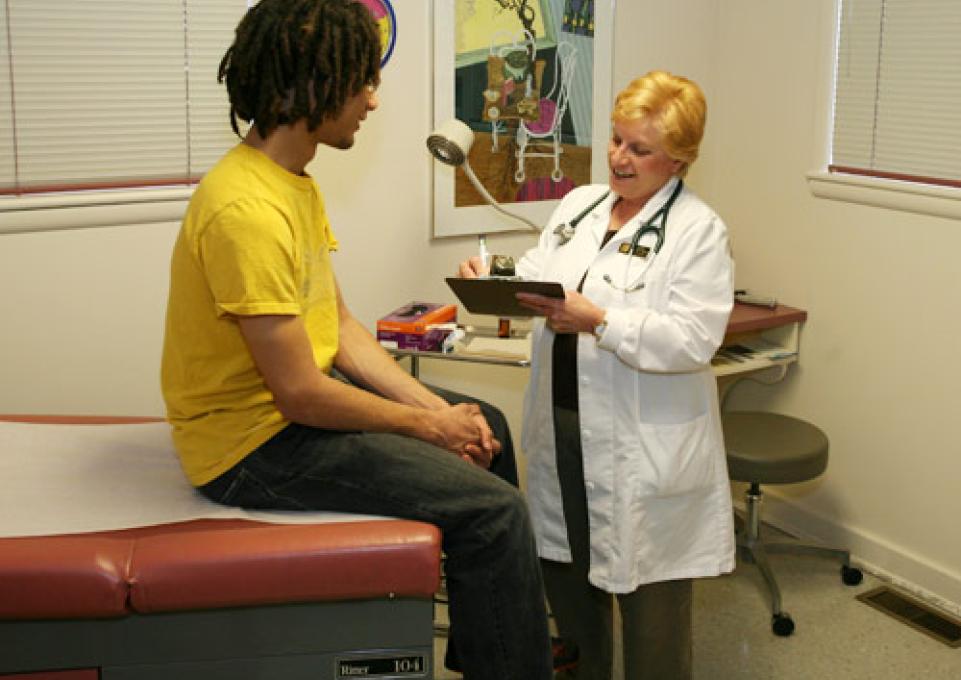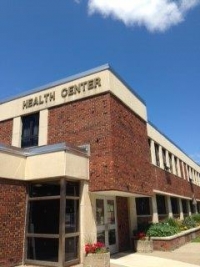
Buffalo State's Weigel Health Center has quietly served thousands of students since opening in 1929. Staffed by a team of physicians, nurse practitioners, and nurses, it provides preventative and therapeutic care to all Buffalo State students—undergraduate and graduate, full-time and part-time, commuter and residential.
What the center can’t provide are sutures, X-rays, ultrasounds and MRIs, and specialized care requiring referral. If students need these types of treatments, but not urgently enough for an ambulance, they have to find their own way to the hospital or specialist’s office. However, many students do not have transportation. This is where the Weigel Health Center Taxi Fund, included within the annual Faculty and Staff Appeal, can help.
The taxi fund provides the fare to ferry a student to a hospital or a doctor who can treat a condition beyond what the health center can handle.
 “I can’t tell you the number of times I’ve reached into my purse and pulled out a $20 bill to pay for a taxi for a student who needs to go to the hospital,” said Theresa Stephan-Hains, director of health center. “He may not be sick enough for an ambulance, but he’s also not in any condition to take the bus.”
“I can’t tell you the number of times I’ve reached into my purse and pulled out a $20 bill to pay for a taxi for a student who needs to go to the hospital,” said Theresa Stephan-Hains, director of health center. “He may not be sick enough for an ambulance, but he’s also not in any condition to take the bus.”
Along with the taxi fund, there are two other Weigel funds included in the 2015 Faculty and Staff Appeal: Bridge the Health Insurance Gap and Life Support Training.
The former helps students enrolled in the college’s student health insurance plan pay the premiums. Administered by Consolidated Health Plans, this is a national health plan with access to in-network providers everywhere in the country. Premiums cost students approximately $1,900 a year.
“The campus plan is a great deal, but is still cost-prohibitive for some students,” said Stephan-Hains. While the federal Affordable Care Act allows adult children up to age 26 coverage under their parents’ insurance, some students fall through the cracks.
“Their parents may not be able to afford to put them on their insurance plan. Other students don’t qualify for their parents’ coverage due to their age or other circumstance,” she said. “We have about 500 Buffalo State students on the campus plan, and there may be others who would qualify.”
Finally, the Life Support Training Fund covers books and other materials required for the American Heart Association’s Basic Life Support course. Through the three-hour course, students learn how to intervene if they see someone suffering cardiac arrest or other life-threatening medical condition. It also trains participants on how to use Automated External Defibrillators (AED), devices that deliver a therapeutic dose of electrical energy to the heart and are available across campus.
“We would like to expand our training of students in life support. However, it costs $20 per person so it can run into money quickly,” said Stephan-Hains. “But what kind of price can you put on saving a life?”
To contribute to a Weigel Health Center fund or numerous funds within the 2015 Faculty and Staff Appeal, contact Claire Collier at (716) 878-5206. See a full list of schools, funds and departments.
